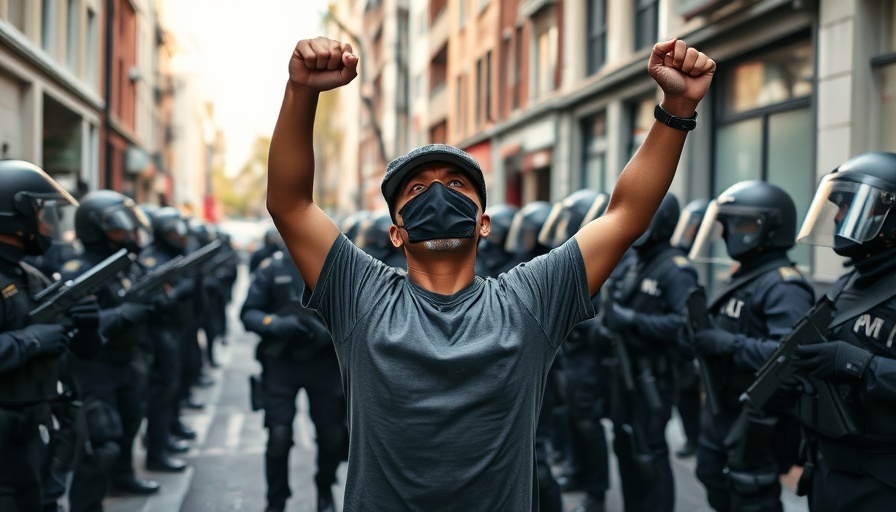
Trump Administration Takes Immigration Battle to the Supreme Court
The Trump administration's recent push to lift a temporary restraining order in Los Angeles showcases the ongoing conflict between federal immigration policies and local civil rights protections. On Thursday, federal officials filed an emergency appeal with the Supreme Court against a ruling that blocked “roving” immigration stops across Los Angeles and eight other counties in California. This case, underscoring tensions around immigration enforcement, raises significant questions about the balance of law enforcement and civil liberties.
What is at Stake?
At its core, this legal battle pits government interests against civil rights. The appeal challenges a previous ruling by U.S. District Judge Maame Ewusi-Mensah Frimpong, who cited substantial evidence indicating that the Trump administration's methods likely violated the Fourth Amendment rights of those detained. This amendment protects individuals from unreasonable searches and seizures, a principle argued vigorously by civil rights advocates.
Frimpong’s order specifically barred immigration authorities from using race, ethnicity, language, and location as grounds for establishing reasonable suspicion—a decision celebrated by many who argue it addresses systemic racial profiling in immigration practices. The administration's lawyers argue that this restriction undermines the ability of immigration agents to enforce the laws and casts a shadow of potential legal consequences over standard investigative procedures.
The Context of Racial Profiling
Kevin R. Johnson, the director of the Aoki Center on Critical Race and Nation Studies at UC Davis School of Law, emphasizes that this dispute is fundamentally about racial profiling. He questioned the legitimacy of detaining individuals based solely on their appearance, suggesting that such practices reflect broader racial biases embedded within law enforcement tactics. This crucial aspect of the case highlights the intersection between immigration enforcement and societal issues of race and identity.
Federal Enforcement Methods Under Scrutiny
Since early June, reports have emerged of heavily armed, masked agents conducting aggressive immigration stops in everyday locations such as Home Depots and Latino markets. Such enforcement tactics have drawn public ire and concern about overreach, with agents using military-style equipment to detain not just undocumented immigrants, but also U.S. citizens caught in the crossfire of aggressive apprehension policies. The disturbing imagery of these operations, often shared widely on social media, poses ethical questions about the methods employed in enforcing immigration laws.
Legal Landscape and Future Implications
The Supreme Court’s handling of this case will likely have long-reaching implications for immigration enforcement nationwide. With numerous legal challenges to various aspects of Trump's immigration policies already reaching the courts, the administration shows no signs of backing down, especially considering its previous successes in obtaining favorable rulings. Legal experts anticipate that the Supreme Court's decision on this matter will set precedents that could either reaffirm or dismantle existing protections against racial profiling during immigration operations.
Voices from the Community
Community reactions to these raids have been mixed, with some seeing them as necessary measures to enforce the law, while others view them as a direct assault on civil liberties. As discussions unfold, legal advocates assert the essential role civil rights organizations play in protecting vulnerable populations from unjust treatment. This case has galvanized support from various local governments and community groups, framing a narrative that advocates for compassion in a national dialogue that has often leaned towards exclusion and fear.
Call to Action: Community Engagement and Awareness
As this critical case develops in the Supreme Court, community members are encouraged to stay informed and engage in discussions about the implications of these policies on their neighborhoods. Understanding the balance between enforcing laws and protecting civil rights is pivotal in moving towards a more just society for all its members.
 Add Row
Add Row  Add
Add 




Write A Comment